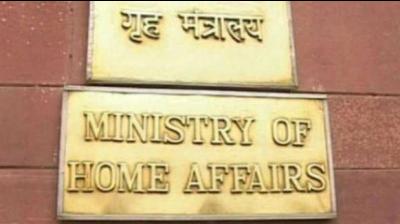AA Edit | Hasina faces challenges; but win is good for India
Bangladesh may be in danger of being reduced to a one-party state as the main Opposition chose to boycott the poll, and 15 other parties
Democracy, whose basic premise is free and fair polls, may have got off on the wrong foot in the significant election year of 2024 in which more than half the global population will be eligible to exercise their franchise.
The polls in Bangladesh, the first of the year in which major democracies like India and the United States as well as tiny ones like Bhutan, besides autocratic regimes like Russia, will be holding elections, were free but boycotted by the major Opposition party, the Bangladesh Nationalist Party, allowing Sheikh Hasina to continue for a fourth consecutive term out of the five terms that she has been in power.
Bangladesh may be in danger of being reduced to a one-party state as the main Opposition chose to boycott the poll, along with 15 other parties, rather than participate in the process that endorsed the Awami League’s popular rule, with just over 40 per cent of the electorate turning up, leading to the second lowest turnout since the restoration of democracy in 1991.
Sheikh Hasina’s balancing act between India and China has never failed the test of diplomacy and relations with India are expected to remain harmonious as her rule extends. India has heartily welcomed her re-election as it sees in her a trustworthy friend who will sustain the goodwill in relations that are important in an otherwise prickly neighbourhood.
Hailed as the architect of transformation in the Bangladesh economy even as she fought off military coups and Islamist militancy, Sheikh Hasina may face greater challenges on the economy front as the heavy reliance on the readymade garments trade leaves it vulnerable to external shocks, besides bearing the cost of US action like visa embargoes in response to the suppression of the Opposition and labour leaders.
Debt sustainability and pressures on currency may pose challenges too. What may trigger stiffer reaction from the defenders of democracy like the United States is that the latest round of elections may have dented Bangladesh’s credibility somewhat, even as the main Opposition leader remains under house arrest (in a hospital) after a conviction for corruption.
The Jatiya Party, an ally of the Awami League, won 11 seats after a tight seat-sharing arrangement with the ruling party while several Opposition parties won a seat each. The fact that Independents, mainly ruling party members, won more than 60 seats suggests that the intent of the ruling party may have been to not invest any Opposition party with prominence.
Long before the votes were cast on Sunday in populous Bangladesh, the country had been pushed towards an assertion of the Awami League’s political dominance though critics saw the jailing opponents and the use of force by law enforcement agencies to disband demonstrations as negative indicators.
Sheikh Hasina’s political identity may be shaped by how she manages to carry all the people, including those with different views, in her new term that will see her established as the longest reigning Prime Minister of the country.


















